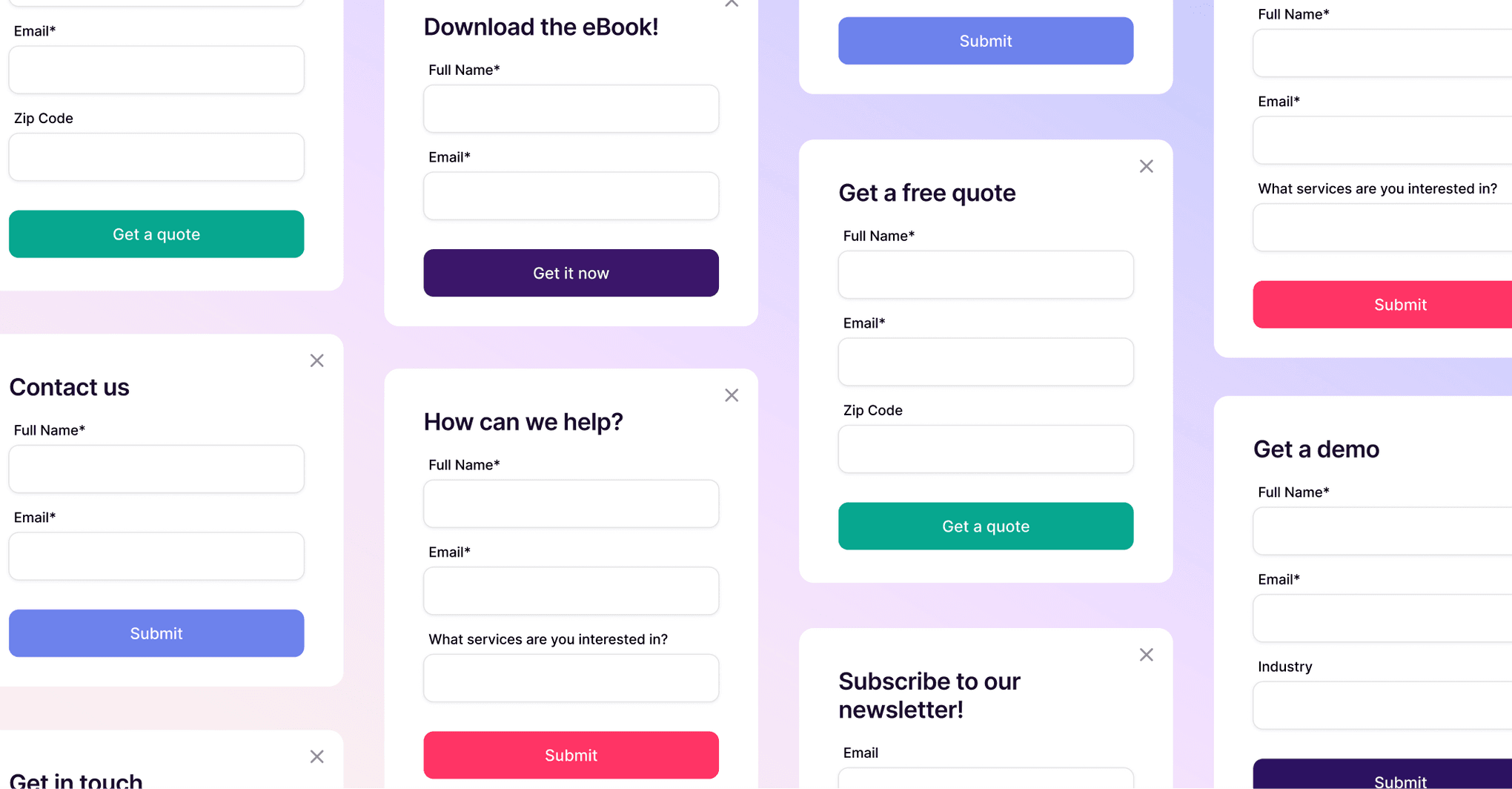Liz Gonzalez
Key takeaways
Required CRM fields enable companies to qualify leads as opportunities by capturing information that determines product-market fit, budget capacity, and company size.
Lead qualification drives field selection, with SaaS companies typically requiring full name, company name, lead source, contact details, location, and company size as mandatory fields.
Lead source tracking provides sales teams conversation context while giving marketing teams data on which channels generate the most revenue and closed opportunities.
Copper CRM's custom fields feature allows businesses to tailor their CRM to specific workflows, enabling teams to capture unique data points beyond standard fields while maintaining clean, organized contact records.
Location fields as required data points allow businesses to analyze regional performance, optimize spending allocation, and identify areas for improvement or expansion.
The fields in your CRM aren’t just for fun. Or because we just like to record customer information for the heck of it.
They're so your company can get the information it needs about your customers in order to tailor everything from your marketing, sales, and customer success efforts toward them.
A required field is one that can’t be left blank, meaning it has to be filled out by the rep working on the customer record.
So, how do you determine which fields are absolutely essential?
Keep reading to find out.
Start with this: what do you need in order to qualify a lead as an Opportunity?
For the sake of using examples in this article, let’s say you run an online business in which you sell things. That’s pretty inclusive.
Your leads are coming in from multiple sources: landing pages, social media, referrals, paid ads, etc.
From there, they’re probably directed to a lead-capture form which requires them to enter certain data. This data is then populated into your CRM (hopefully automatically, otherwise let’s talk).
A good chunk of these leads are a great fit for your product or service—there’s a lot of value in it for them! These are the leads you want your Marketing and Sales teams to focus on converting into customers.
Qualification is finding that “good chunk.”
To do this, you’ll need to have your ideal customer defined already. This definition will tell you which fields are essential to include in that lead-capture form (and will make up some of your required CRM fields as well).
For example, if you’re selling a SaaS tool, some of the things you’ll need to know about the lead are:
- How big their company is (how many people would be using your product?)
- How big their budget is (can they afford your product?)
- The name of their company (so you can do your research and find out if it’s a good product/market fit)
So then, the required fields in your CRM should be:
- Full Name
- Company Name
- Lead Source
- Lead Owner
- Phone Number
- Email Address
- Location (Country, State)
- Company Size
Makes sense, right?
You should then repeat this process of narrowing down the information you need to know about your contacts and which fields you need to contain this information in your CRM.
To help you out, we’ve put together a list below of CRM fields we personally can’t live without—a “master list” if you will. Maybe you’ll feel the same way about them, or at least be able to use them as a base to determine your own list.
Keep in mind that not all CRMs are the same, so not all of them have the same fields. Hopefully, you have a CRM that lets you create custom fields.
Fields that should be required in a CRM: our master list.
Leads
- Full Name
- Company Name
- Lead Source
- Lead Owner
- Phone Number
- Email Address
- Location (Country, State)
- Company Size
For example, here the fields shown are First Name, Company, Email, Owned By, and State.
Opportunities
- Opportunity Name
- Opportunity Owner
- Lead Source
- Location (Country, State)
- Company Size
- Seat Size
- Pipeline Value
- Use Case
- Competitors (that we’re up against)
- Won/Loss Reasons
In this example, we can see the Opportunity Name, Opportunity Owner, and Pipeline Value.
People
- Full Name
- Company Name
- Person Source
- Person Owner
- Phone Number
- Email Address
- Location (Country, State)
- Company Size
In this example, the fields shown are Full Name, Company, Email, Phone, Owned By, and State.
Companies
- Company Name
- Account Owner
- Location (Country, State)
- Company Size
The Company Name, Owned By, State, Country, and Company Size fields are being used here.
Projects
- Name
- Owned By
- Related To
- Modified
- Status
- Created
Here, the fields shown are Name, Owned By, Related To, Modified, Status, and Created.
These fields aren’t only about individual contacts. They give you a big-picture view of your business.
For example, “Lead Source” is a field many overlook but it’s actually highly valuable information to have. It lets Sales know where the lead came from so they can carry the conversation forward from there. For Marketing, it’s awesome to report back on lead sources that resulted in a lot of closed opportunities and which ones generated the most revenue.
Another example: by making “Location” a required field, you’ll be able to tell how your business is doing in different regions. This granularity will help you more effectively run your business business, since you’ll where to put spend and headcount as well as where your company is doing well and which areas you need to improve in.
Is your CRM cutting it?
If your CRM doesn’t have the fields you need, or if you don’t have to option to make them your own through customization, it may be time for an upgrade.
Give Copper a spin for 14 days for free, no credit card details needed—it isn’t one of our required fields. ;)






